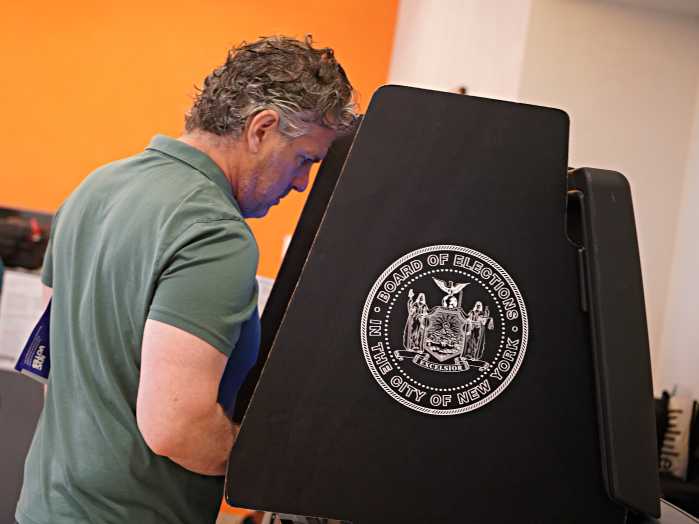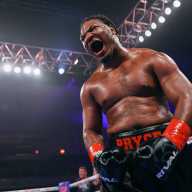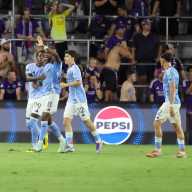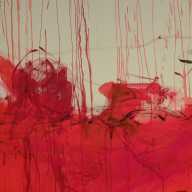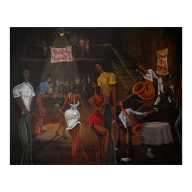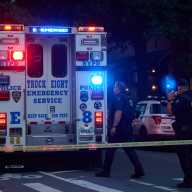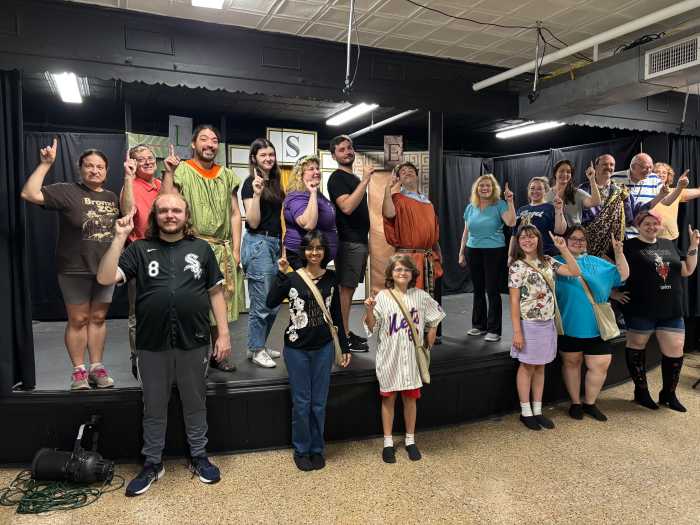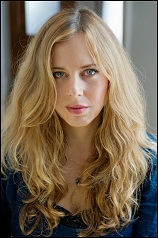
BY JESSICA MILLIKEN | Deborah Landau, the longtime behind-the-scenes literary caretaker of Greenwich Village, is finally getting the spotlight.
For years, Landau directed the prestigious creative writing programs at New York University and The New School while crafting her own poetry in obscurity. This past spring, Copper Canyon put out her newest and best collection, “The Uses of the Body.”
The New Yorker published one of her poems, plus a long, thoughtful review of her book. Interview magazine published a beautiful photo of her, accompanied by a lengthy Q&A, and the L.A. Times issued a rave, calling her a “cross between Dorothy Parker and Sylvia Plath.”
At a recent interview at The New School, where she used to teach, the 40-something Landau — who lived in Soho for decades — spoke about her third collection. It starts at a summer wedding, where she provocatively explores the rites of passage of a woman’s existence — sexuality, marriage and motherhood.
“ ‘The uses of the body’ was the engine driving the poems along,” she said. “It helped me to riff on the many ways in which we can be ‘used,’ and then, eventually, find ourselves ‘used up.’ I was haunted by the question — ‘what is a woman’s body good for post-reproduction?’ ”
With catchy lines like “these are the ABC’s of my fear/The doctor says, I don’t have a pill for that, dear,” Landau’s poems are filled with a sultry satisfaction as she scrutinizes the vulnerability of coming of age. Her dark musings read elegantly in her poem “Solitaire,” depicting the quirky transition from girlhood to reproductive being: “In the pool, I was more heavy than light./Pockmarked and flabby in a floppy hat./ What will my body be/ when parked all night in the earth?Midsummer. Breathe in. Breathe out./I am not on the oxygen tank./Twice a week we have sex./The lithe girls poolside I see them/at their weddings I see them with babies their hips/thickening I see them middle-aged./I can’t see past the point where I am. Like you, I’m just passing through.”
While Landau looks far too glamorous to be living in Brooklyn with her husband, three kids and dog, her life hasn’t been as easy as it seems.
“Because I lost my own mother early, at 29,” she said, “I’ve felt I didn’t have anyone to show me the way. There’s a line by Lisel Mueller that stays with me: ‘the death of the mother hurt the daughter into poetry.’ My mother and I were very close. I had two sons and thought I’d never be part of a mother/daughter pair again. Then, 10 years later, my daughter showed up. This book is dedicated to her.”
When she’s not assisting students at N.Y.U.’s prolific townhouse on 10th St., Landau looks forward to creative spurts while instructing the university’s summer M.F.A. program in Paris.
“Teaching is a great source of sustenance,” she said. “I learn so much from the students, from what they’re reading and trying out.”
Landau loves writing to music at home. Her second book, “The Last Usable Hour,” was composed to Chopin, and she claims the tones of Lana Del Ray open a fertile pathway that pours out her deepest language.
Landau’s fascination with literature was sparked by reading Walt Whitman as a young girl in Ann Arbor, Michigan. At 13, her mother gave her a poetry book by Anne Sexton. With a love for English, Landau attended Stanford and Columbia and received her Ph.D. from Brown. Despite her impressive education, Landau’s talent is passion based.
“I write, then come back later and try to piece it together,” she said. “Life is temporary and the way I like to create is existential, without purpose in mind. I hope readers will find their experiences mirrored or articulated in my poems.”




